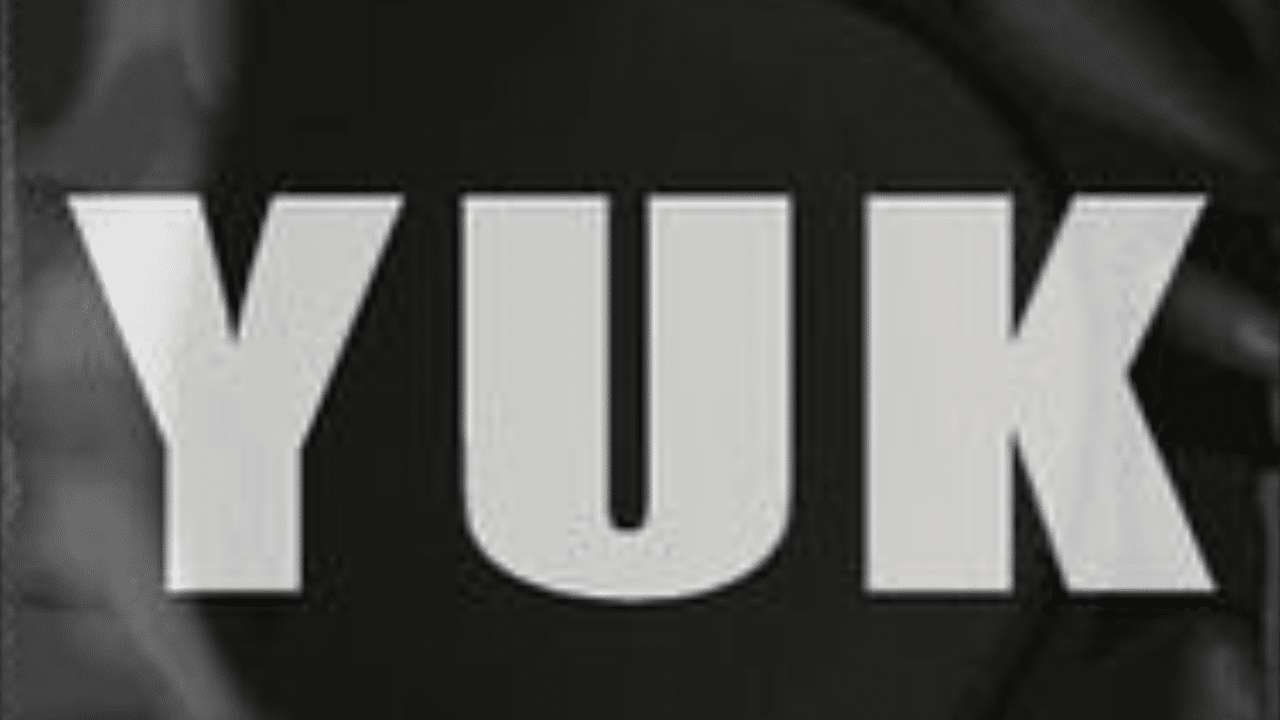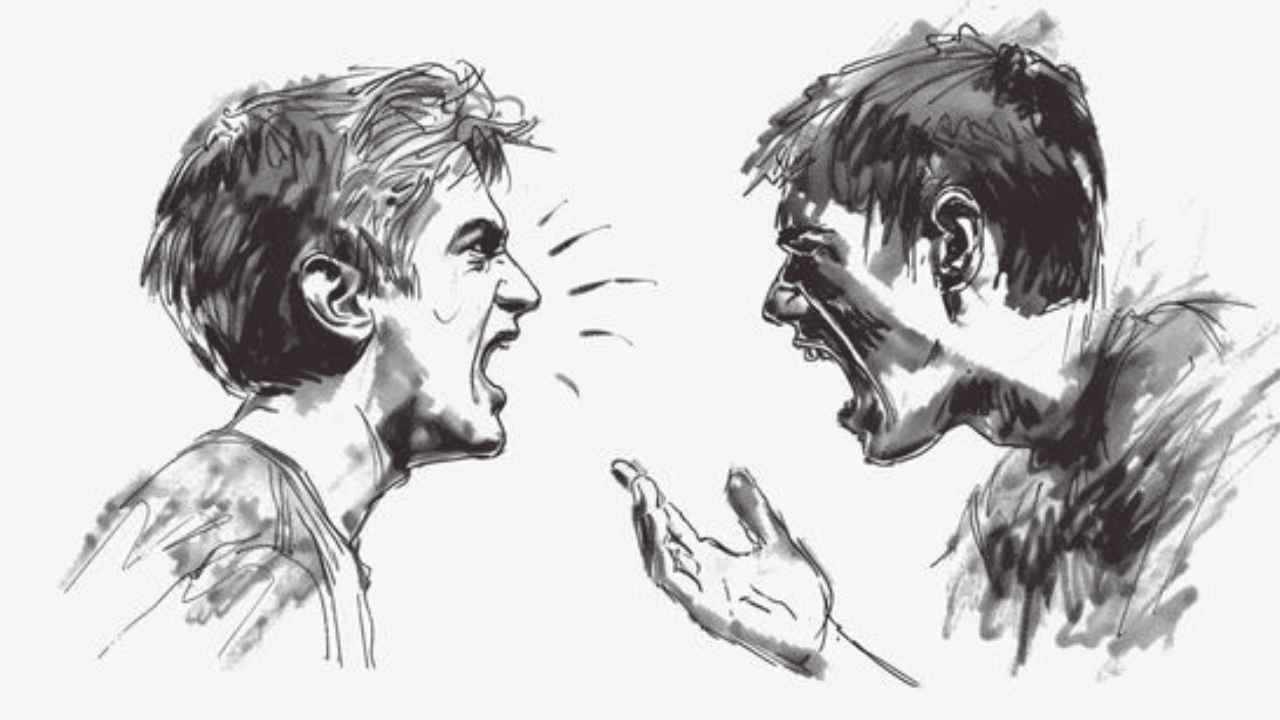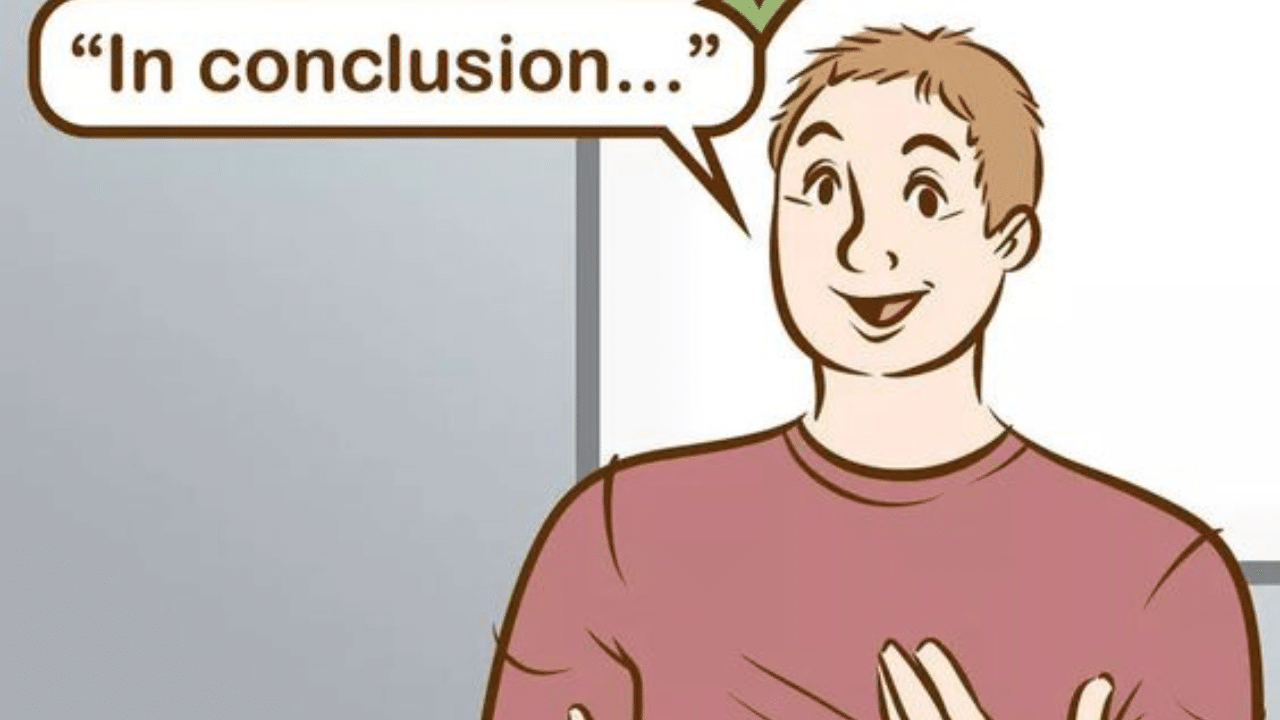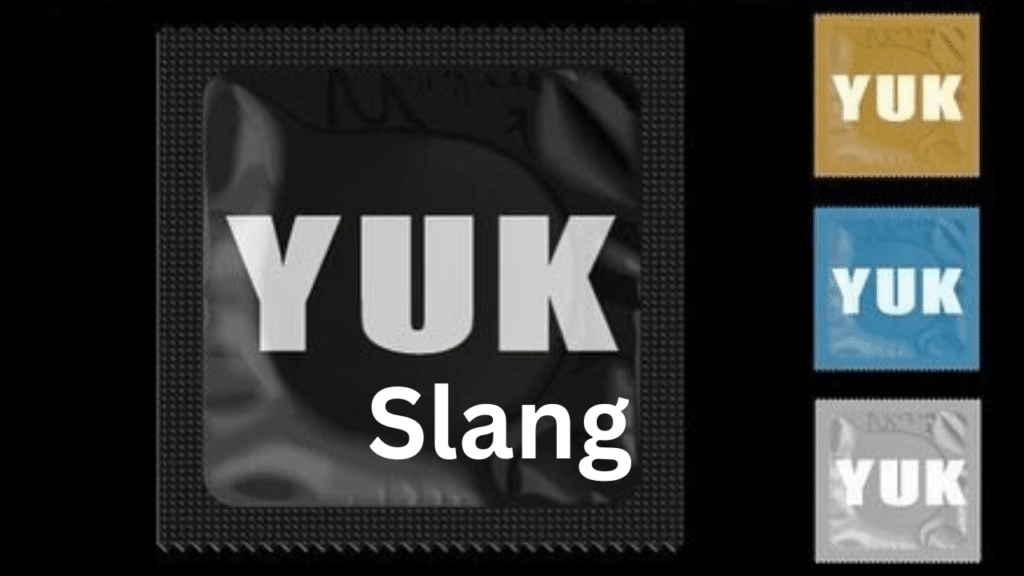Slang has a way of painting the world in vivid, relatable colors. One word that carries an intense emotional punch is “Yuk.” https://www.slangsphere.com/understanding-yuk-the-slang-and-its-implications/ But what does this term really mean, and how does it resonate with different people in different contexts? Let’s dive into the layers of meaning behind this simple yet expressive word, explore its emotional depths, and unravel its cultural significance.
1. What Does ‘Yuk’ Really Mean? 🤔
On the surface, “Yuk” is an expression of disgust or revulsion. You might hear someone say it when faced with something unpleasant—whether it’s a food that doesn’t taste right, a sight they’d rather not see, or a situation that makes them cringe. But like most slang, “Yuk” is more than just a reaction; it’s a reflection of our raw, unfiltered emotions.

It’s a word that captures that moment when something feels wrong or out of place. It’s quick, direct, and unapologetic, allowing the speaker to express distaste in the most succinct way possible. But beyond this basic definition, the context in which “Yuk” is used can offer deeper insights.
2. Emotional Landscape of ‘Yuk’ 😬
At its core, “Yuk” is about more than just disgust—it’s about the reaction to discomfort. Disgust has layers: it can be funny, dramatic, or even a little exaggerated. When you say “Yuk,” you’re not just rejecting something unpleasant; you’re making a statement about how that experience makes you feel.

- Relatable Rejection: Picture yourself at a party, trying a new food dish that looks promising but tastes… not so great. You make a face and mutter, “Yuk.” In that small moment, you’re not just expressing disgust, you’re sharing a relatable moment with others around you. They get it. The feeling of rejecting something that doesn’t sit right is universally human.
- Discomfort with Humor: Sometimes, “Yuk” can carry a humorous edge. When used with friends, it’s playful, poking fun at an unpleasant situation. “Yuk” doesn’t always need to be heavy—it can bring people closer through shared laughter over something gross or awkward.
3. Cultural Context: Where ‘Yuk’ Shows Up 🌍
While it’s widely understood in English-speaking communities, its usage may vary based on region, age, or even social group.

For instance, in online spaces, you’ll find “Yuk” used in comment sections, memes, or reactions to strange or funny content. This type of interaction creates a sense of camaraderie among people who share the same disgust or discomfort, even in virtual environments.
In certain contexts, “Yuk” has become shorthand for rejecting not just something physically unpleasant, but ideas or situations as well. Online, you might see it used to dismiss controversial or uncomfortable topics, sparking debates or offering a quick emotional response to what feels wrong or unsettling.
4. ‘Yuk’ and Creativity: Turning Disgust into Inspiration 🎨
Although “Yuk” primarily conveys discomfort, it can also be a source of creative inspiration. Many artists, writers, and creators draw on unpleasant feelings to fuel their work. That sharp sense of rejection or revulsion can lead to powerful expressions of art that provoke thought or challenge the status quo.

- Imaginative Response to Discomfort: Imagine turning a “Yuk” moment into something larger—using the emotion it stirs to fuel creativity. Whether it’s turning an awkward or gross experience into a comedic sketch, or channeling the discomfort into a story about resilience and growth, the emotional charge behind “Yuk” can spark innovation.
5. How We Use ‘Yuk’ in Everyday Life 🗣️
In casual conversation, “Yuk” is as versatile as it is concise. It’s a quick response to situations that make us recoil—be it a messy room, an unappetizing meal, or even a distasteful joke. It’s direct and to the point, making it an essential part of informal communication.
But the way we use “Yuk” also speaks to our shared human experience. It allows us to express our dislike in a way that’s almost universally understood, regardless of background. It’s not about dwelling on negativity; it’s about releasing that moment of discomfort and moving forward.

- Shared Empathy: Using “Yuk” allows us to empathize with others. When someone else says it, we often know exactly what they’re feeling. Whether it’s something we’ve tasted, seen, or experienced ourselves, that little word opens up a channel of understanding and connection.
6. The Psychological Implications of ‘Yuk’ 🧠
On a deeper level, the word “Yuk” reveals a lot about human psychology. Our instinct to reject certain things—whether it’s something we see, smell, or hear—is part of our survival mechanism. When we say “Yuk,” we’re protecting ourselves from something that might cause harm or discomfort.

Psychologically, it’s a release. Instead of bottling up unpleasant feelings, we vocalize them, which can actually reduce the emotional weight of the moment. In some cases, expressing disgust through slang like “Yuk” can be a cathartic experience, allowing us to distance ourselves from negativity.
- Shared Empathy: Using “Yuk” allows us to empathize with others. When someone else says it, we often know exactly what they’re feeling. Whether it’s something we’ve tasted, seen, or experienced ourselves, that little word opens up a channel of understanding and connection.
7. The Evolution of ‘Yuk’: From Past to Present ⏳
Like most slang, “Yuk” has evolved with time. Originally, it may have been a simple, instinctual reaction to something unpleasant, but over the years, its usage has broadened and taken on new layers of meaning. As with other slang terms, “Yuk” has become more than just a word—it’s become part of how we communicate in various settings, from casual conversations to online interactions.

- Generational Shifts: In the past, “Yuk” may have been used sparingly, but now it’s become a staple in digital dialogue, whether it’s in memes, GIF reactions, or quick text messages. It’s an excellent way to capture immediate distaste without over-explaining. Its brevity and punchy sound make it a perfect fit for the fast-paced digital age.
- The Meme Era: In recent years, the internet has given “Yuk” a humorous twist, transforming it from a simple expression of disgust to a playful, exaggerated reaction. Meme culture, in particular, has embraced “Yuk” as part of the visual language of reaction images and videos, where it’s often paired with dramatic facial expressions or absurd situations. These exaggerated versions take “Yuk” beyond mere disgust, infusing it with humor and a sense of shared experience.
8. Creative Uses of ‘Yuk’ in Popular Culture 🎥
As slang seeps into popular culture, “Yuk” has found its place in films, TV shows, music, and even advertising. It’s no longer just a word used to describe something gross—it’s become a symbol of rejection, resistance, and even comedy.

- In Film and TV: Whether it’s a character expressing their distaste for an awkward situation or a comedian using the word for comedic effect, “Yuk” often serves as a punchline. It’s quick, it’s relatable, and it captures the audience’s attention immediately. Directors and screenwriters love slang like “Yuk” because it conveys emotion in a way that feels authentic and natural.
- In Music and Art: Musicians and artists often use slang to connect with younger audiences, and “Yuk” is no exception. It’s found its way into lyrics, performances, and even as a visual element in artwork, symbolizing the rejection of societal norms or expressing personal discomfort. In this way, “Yuk” has transformed from a fleeting reaction to a deliberate, artistic choice.
9. Slang, Expression, and the Human Experience 🌱
At its heart, the use of slang like “Yuk” is part of the broader human desire to express emotion quickly and effectively. Whether we’re dealing with the mundane frustrations of daily life or responding to more profound discomfort, slang allows us to connect on a deeply emotional level without needing to explain ourselves fully.

- Cultural Reflection: The words we use, especially slang, reflect the world we live in. “Yuk” doesn’t just express disgust, it reflects how we navigate a world full of sensations, experiences, and ideas that don’t always sit well with us. It’s a way to cope, laugh, or share our discomfort, helping us bond with others over shared reactions.
- A Tool for Connection: By using a simple word like “Yuk,” we find common ground with others. It bridges gaps, allows for shared laughter or empathy, and creates a moment of understanding. We all have things that make us recoil—whether it’s a bitter taste, a disagreeable smell, or an awkward social interaction—and “Yuk” is the linguistic tool that unites us in those moments.
10. The Future of ‘Yuk’: Where It’s Heading 🚀
As with all slang, the future of “Yuk” is ever-changing. Will it continue to be a staple in our vocabulary? Or will it evolve into something else entirely? It’s difficult to say, but one thing’s for sure: words like “Yuk” don’t disappear. They transform, adapting to the needs of new generations and new platforms of communication.

In the future, we might see “Yuk” take on new meanings or be used in innovative ways in online communities, especially as internet slang continues to evolve. From disgust to humor, from reaction to rebellion, “Yuk” is likely to remain a versatile and powerful word in the lexicon of slang.
Final Thoughts: The Beauty of Slang in All Its Forms 🌈
“Yuk,” like many other slang words, holds more power than its simple appearance suggests. It’s a word that carries emotional weight, cultural significance, and a strong sense of shared human experience. Whether it’s used to describe a physical reaction to something gross, or as a more abstract expression of disapproval or discomfort, “Yuk” captures a moment in time, a feeling, and a connection with others.

In a world that’s constantly changing, slang words like “Yuk” evolve right along with us, reflecting not only the language we speak but the way we feel, react, and express ourselves. And that’s what makes slang—however fleeting it might seem—an essential part of who we are.
As we move forward, embracing new trends, technologies, and cultural shifts, words like “Yuk” will continue to be our way of navigating the world, one exclamation at a time. So the next time you find yourself in a “Yuk” moment, remember that you’re part of something bigger—a collective human story told through the ever-changing language of slang. 🌟
Conclusion: The Power of ‘Yuk’ in Language 🚀
Though it may seem like a simple, even childish word, “Yuk” carries emotional weight and cultural significance. It reflects our ability to process discomfort in a way that’s immediate, relatable, and sometimes even humorous. Whether used in everyday conversation, online discourse, or as a response to life’s little unpleasant surprises, “Yuk” is more than just an expression—it’s a snapshot of how we feel in the moment.

From playful reactions to deeper psychological insights, “Yuk” reminds us that not everything in life will be perfect, but
Explore These:-
https://slanggalaxy.com/what-does-osrs-mean-on-instagram/
our ability to respond and share these moments with others is what truly connects us.







